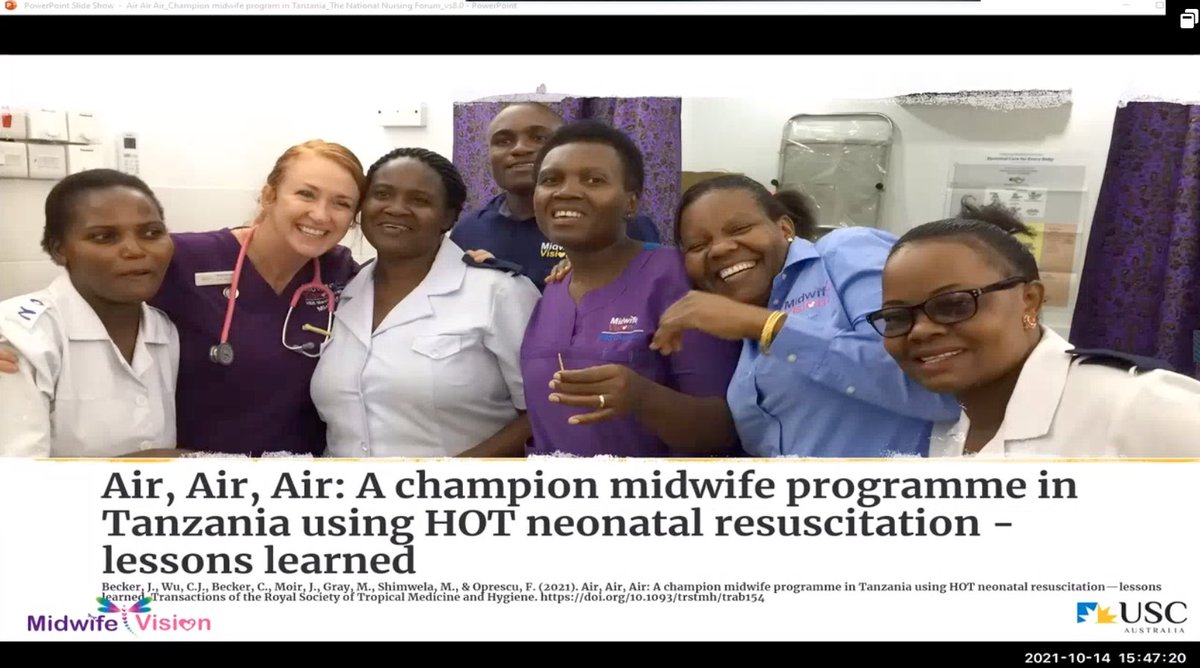Next up in the Rising Stars stream is Captain Jan Becker who travels to Tanzania 3 or 4 times a year to work in a maternity hospital #NNF2021 

In her travels she noticed the high rate of neo natal death due to the lack of skills of midwives in resuscitating babies #NNF2021 

Tanzania has one of the highest rates of neo natal deaths in the world - 40 000 per year. Many can be prevented #NNF2021 

Becker worked in a hospital with 13 500 births per year - there are skilled nurses and midwives with dedication and training despite the resource-constrained environment. #NNF2021 

Many midwives were not using resuscitation practices - despite education on evidence-based practice they revert to older less effective strategies when on the wards. #NNF2021 

The catalyst for the project was one day when 6 babies died - Becker and her daughter realised that the hospital needed an immediate and immersive training program in simple resuscitation skills. #NNF2021 

The developed the HOT resuscitation program - centred on guided resuscitation with an experienced midwife. The mentorship by a champion midwives is crucial - to pass the torch and to build hope and confidence. #NNF2021 

Becker emphasises that HOT resuscitation is a practical skill which needs practice in a clinical setting - it needs to be seen and experienced in the wards in an environment without blame and shame. #NNF2021 

The program has been successful in reducing neonatal deaths and building expertise among local midwives. 62% of the midwives going through the program became champions and now coach and mentor other midwives. #NNF2021 

Becker emphasises the importance of longstanding trusted relationships and cultural collaboration for the success of this program - she stresses that first world solutions will not work in Tanzania. #NNF2021 

Changing clinical practices is not an easy process Becker says - it requires persistence, patience and a lot of respect - local midwives need to be leaders. #NNF2021 

plz unroll @threadreaderapp
• • •
Missing some Tweet in this thread? You can try to
force a refresh



















